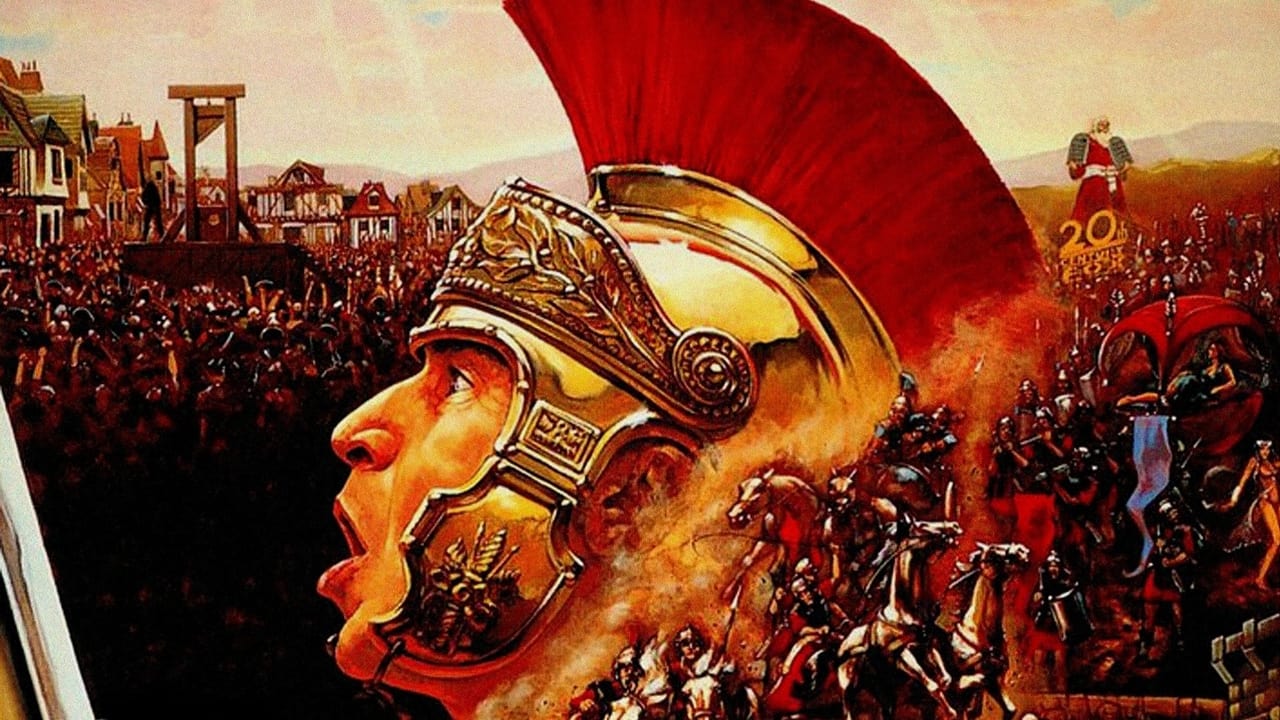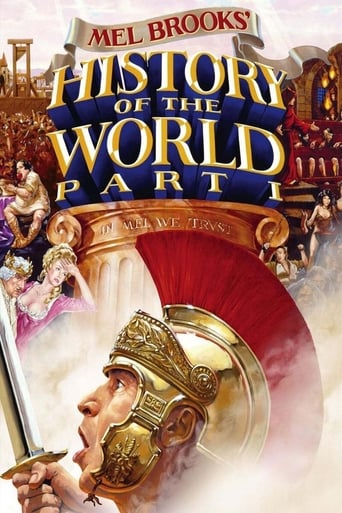

A Brilliant Conflict
... View MoreThis movie tries so hard to be funny, yet it falls flat every time. Just another example of recycled ideas repackaged with women in an attempt to appeal to a certain audience.
... View MoreThe film's masterful storytelling did its job. The message was clear. No need to overdo.
... View MoreStory: It's very simple but honestly that is fine.
... View MoreIf you like a liberal display of toilet humor and sexual innuendo in a silly campy comedy film, this is the movie for you. What makes Mel Brooks' films unique is a sense of good clean fun. In the world of Brooksian comedy, the good are heroic and the nasty get whats coming to them. Brooks pitches popular low brow comedy to the masses and hits every time. This movie is structured around certain famous periods in history starting with caveman days moving on to biblical times, then ancient rome and so on until ending in the 17th century with the rule of King Louis of France.Don't take it seriously and you will be sure to enjoy it.
... View More"History of the World: Part I" is a shocking example of a 90-minute series of gags that land with a dull thud. This is coming from a Mel Brooks fan, which is the reason for the shock. Also, the disappointment. It started out with promise (Brooks and the fift- . . . ten commandments, Bea Arthur in the unemployment office but then the Ancient Rome segment happens and things grind to a halt. And then never pick back up, even after we get out of Rome. It's not every day you see the comedic talents of Dom Deluise squandered (same thing happened with "Smokey and the Bandit II").This was bad.
... View MoreHistory of the World Part 1 (1981) does not represent Mel Brooks at his best. Playing like a spoof of the bloated historical epics of the 50s and 60s, this film is an episodic romp, the highlights being the Roman Empire and the Busby Berkley inspired Spanish Inquisition musical number. The other segments are also good, just not as inspired.The whole film is packed with raunchy humor, sight gags, and surreal touches (this film probably has more fourth-wall breaking than Blazing Saddles (1974)). Some of the jokes fall flat and fall hard, but when they work they'll have you on the floor.It's no Young Frankenstein (1974) or Blazing Saddles, but this is still a funny movie. You can't ever go wrong with Mel Brooks!
... View MoreFrom the dawn of man to the distant future, mankind's evolution (or lack thereof) is traced.I think this may possibly be Mel Brooks' best film. The humor is non-stop, and should be great for everyone. He revives the "walk this way" gag yet again, and even throws in some more subtle references. I really, really loved the vulgar Oedipus joke.I could question the historical accuracy, such as the cave paintings being in America rather than Europe, but since a dinosaur appears soon after, I figure they really did not care very much about this.Brooks has his cast of regulars ready here (Dom DeLuise, Cloris Leachman, Madeline Kahn), and also Gregory Hines (in his screen debut), a welcome addition.
... View More